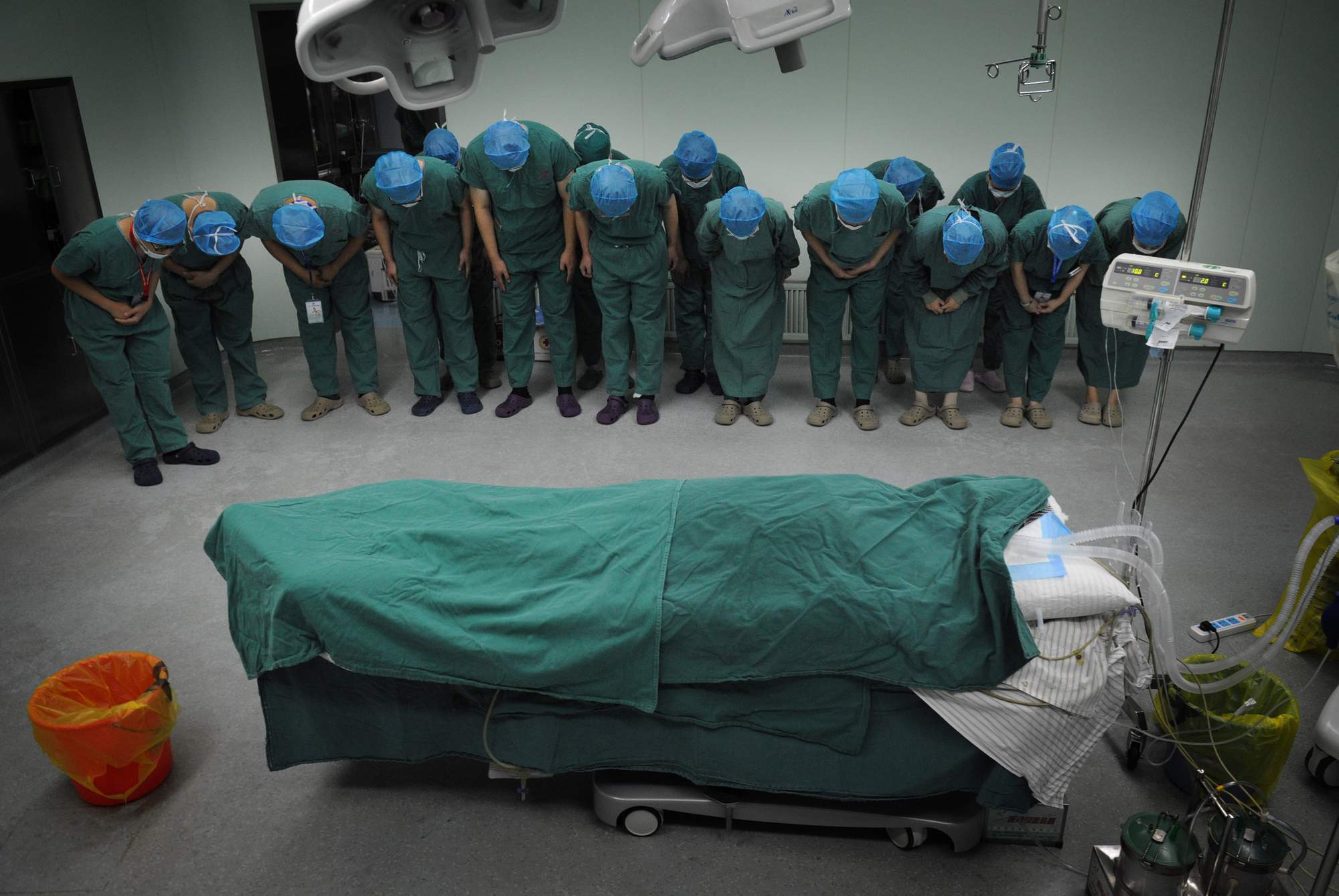78-year-old Shen Douming from Beijing tried to register as an organ donor through a newly-launched service that completes the registration process in just ten seconds.
The service was launched by Chinese tech giant Alibaba and the China Organ Transplantation Development Foundation last week. With a few clicks on the app – log in, search for “medical service” and select “register for organ donation” – the registration will be completed.
Before this revolutionary new concept, people who wanted to donate their organs had to register at the provincial organ donation department, which kept their information on file.

CFP Photo
However, to Shen’s surprise, his three children – two sons and one daughter – all refused to support him with the “easy” registration.
“We can’t accept that,” Shen Guoqing, his eldest son told Legal Daily, “If he donates organs, we can’t keep a complete body for him. Therefore we have nothing to pay respect to and show our love to after his death.”
He is definitely not the only person to hold such thoughts. For many people, it is simply against Chinese traditional beliefs to interfere with the body after death. For many Chinese, especially the older generation, the idea of relatives cremating a body which is not “complete” is just not acceptable.

CFP Photo
That may well explain why the number of organ donors in China has been very slow to increase.
“China has spent lots of efforts promoting organ donation in recent years. But to date, less than 80,000 people have registered as donors, while the number is 130 million in the US,” said Huang Jiefu, director-general of the China Organ Transplantation Development Foundation.
Meanwhile, the elderly man's daughter Shen Liqun raised another concern.
“Even if we donate our father’s organs after his death, we never know who will use them. What if they can’t be used for people who are really in need?” she asked.

CFP Photo
Organ donation is voluntary and without payment in China. According to Chinese law, the information of organ donors or receivers can't be made public – and they aren’t allowed to have contact with each other.
“That has made some people have doubts or concerns like Shen. I’ve talked with several organ donors, they’re worried that their organs will become profit-making tools by some organizations,” Wang Lu, who works at an organ donation station in Beijing, told the Legal Daily.
But Wang adds that more and more young people have become organ donors as “they’re relatively young and face less resistance from the family”.









